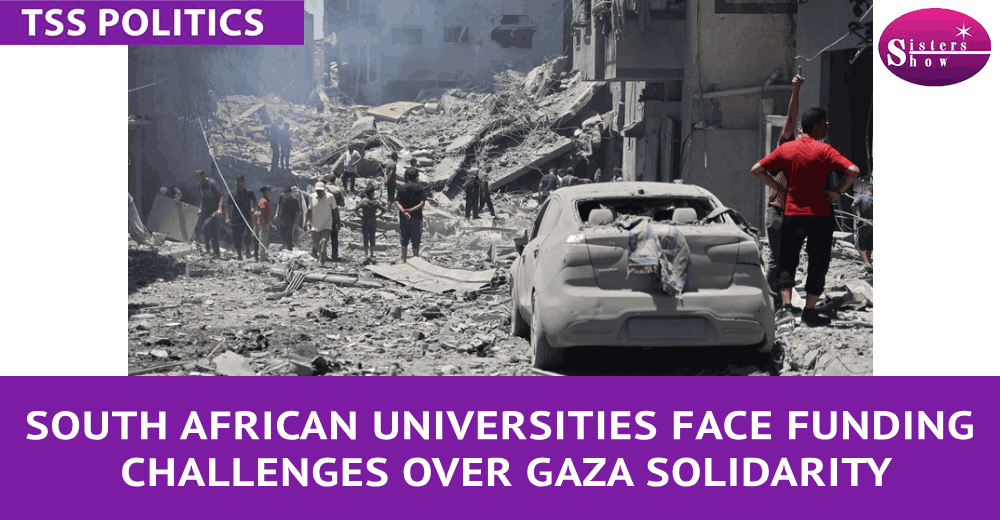
SOUTH AFRICAN UNIVERSITIES FACE FUNDING CHALLENGES OVER GAZA SOLIDARITY
The Geopolitical Context and Its Influence on Academic Funding
The ongoing Gaza conflict has reached beyond political realms, affecting research funding for South African universities. Institutions that have severed ties with Israeli counterparts are now facing the potential withdrawal of international funding. This comes amidst South Africa’s unwavering support for Palestinian sovereignty, which has drawn both praise and criticism.
Former International Relations Minister Naledi Pandor highlighted this issue during the Science Forum South Africa in Pretoria. She emphasized that the sector is vulnerable to the broader effects of a turbulent geopolitical landscape, urging institutions to remain steadfast in their mission to uphold social justice and human rights.
Challenges for South African Universities
Some universities in South Africa have reportedly lost research grants due to their stance on Gaza. The country’s Department of Science, Technology, and Innovation (DSTI) is encouraged to mitigate the effects by helping universities in RSA identify alternative funding sources. This call to action is crucial to ensuring research and innovation initiatives continue uninterrupted, fostering innovation for societal benefit.
Salim Vally, a human rights advocate and academic at the University of Johannesburg, commended South African universities of technology for taking principled stances despite potential sacrifices. He stressed the importance of ethical commitment in academia, describing such actions as vital for knowledge serving the public good.
Global Academic Responses to the Conflict
The Gaza conflict has led to unprecedented academic boycotts against Israeli institutions. While some organizations, such as the International Science Council (ISC), generally oppose academic boycotts, they acknowledge exceptions for systemic human rights violations. South African universities‘ responses are being closely observed globally, making this a defining moment for academic ethics and geopolitical alignment.
The Way Forward for South African Research
Naledi Pandor’s call for strategic financial support underscores the urgency of the situation. Events like the Science Forum South Africa, co-hosted by DSTI and the Science Diplomacy Capital for Africa, aim to foster solutions that strengthen African scientific capabilities. Universities in South Africa Johannesburg must remain resilient, adapting to challenges without compromising their ethical obligations.
A Call for Ethical and Sustainable Support
The financial pressures faced by South African public universities due to their Gaza stance reveal the intricate ties between politics and academia. However, these institutions have an opportunity to showcase their dedication to humanity and justice, inspiring global academic communities to prioritize values over short-term gains.
Conclusion
South African universities are navigating a critical juncture where ethics and funding intersect. The commitment to truth, human rights, and social justice must remain central to academic pursuits, despite the challenges. With support from the government and alternative research funding avenues, the sector can thrive without compromising its principles.
Don’t miss out on the latest updates. Stay updated with Politics news with The Sisters Show. Get all the details and never miss a beat!
Read More:- Emmanuel Macron and the 2024 French Elections: What to Expect from the French President and France Election Results




